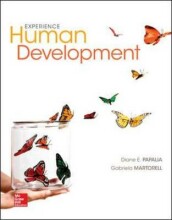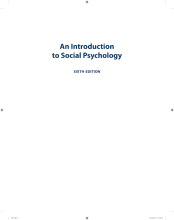About Human Development - The study of human development - Basic concepts
26 important questions on About Human Development - The study of human development - Basic concepts
What are the cognitive developments in the prenatal period?
- being able to remember
- being able to respond
to sensory stimuli
What are the psychosocial developments in the prenatal period?
What are the physical developments in the infancy and toddlerhood period?
- brain grows in complexity
- physical growth and motor skills
- Higher grades + faster learning
- Never study anything twice
- 100% sure, 100% understanding
What physical development is sensitive in the period of infancy and toddlerhood?
What are the cognitive developments in the infancy and toddlerhood period?
- use of symbols and problem solving (start at the end of year 2)
- comprehension and use of language
What are the psychosocial developments in the infancy and toddlerhood period?
- self-awareness develops
- shift from dependence to autonomy forms
- interest in other children increases
What are physical developments in the early childhood period?
- less appetite and sleep problems common
- fine and gross motor skills
- strength inproves
What are cognitive developments in the early childhood period?
- immaturity results in illogical ideas about the world
- memory improves
- language improves
- intelligence more predictable
What are psychosocial developments in the early childhood period?
- self-esteem is global
- more independence, initiative, and self-control
- gender identity develops
- play becomes more imaginative, elaborate, and usually more social
- altruism, aggression, and fearfulness are common
- family still focus social life, but other children become more important
What are the physical developments in the middle childhood period?
- strength and athletic skills improve
- respiratory illnesses are common
- health better than at any other time in the life span
What are the cognitive developments in the middle childhood period?
- thinking more logically but concretely
- memory and language improve
- benefitting from formal school
- some show special educational needs and strengths
What are the psychosocial developments in the middle childhood period?
- coregulations reflect gradual shift control from parents to child
- peers assume central importance
What does the age period adolescence entail?
What are physical developments in the adolescence period?
- reproductive maturity occurs
- major health risks arise from behavioral issues: eating disorder/drug abuse
What are cognitive developments in the adolescence period?
- immature thinking persists in some attitudes and behaviors
- education focuses on preparation college or work
What are psychosocial developments in the adolescence period?
- relationships with parents generally good
- peer group may exert a positive or negative influence
What does the age period emerging and young adulthood entail?
What are the physical developments in the emerging and young adulthood period?
- lifestyle choices influence health
What are cognitive developments in the emerging and young adulthood period?
- educational and occupational choices are made sometimes after periods of exploration
What are psychosocial developments in the emerging and young adulthood period?
- intimate relationships and personal lifestyles are established but may not be lasting
- most marry and become parents
What are physical developments in the middle adulthood period?
- sensory abilities
- health
- stamina
- strength depends on the person
~woman experience menopause
What are cognitive developments in the middle adulthood period?
- expertise
- problem solving
- creative output may decline but improve in quality
- for some career success and earning powers peak
- for some burnout or career changes
What are psychosocial developments in the middle adulthood period?
- midlife transition may occur
- dual responsibilities of caring for children and parents may cause stress
- launcing of children leaves empty nest
What are physical developments in the late adulthood period?
- health and physical abilities decline
- slowing of reaction time affects some aspects of functioning
What are cognitive developments in the adulthood period?
- intelligence and memory may deteriorate in some areas: most people find ways to compensate
What are psychosocial developments in the late adulthood period?
- develop more flexible strategies to cope with personal losses and impending death
- relationships with family and friends can provide important support
- Search for meaning in life assumes central importance
The question on the page originate from the summary of the following study material:
- A unique study and practice tool
- Never study anything twice again
- Get the grades you hope for
- 100% sure, 100% understanding































